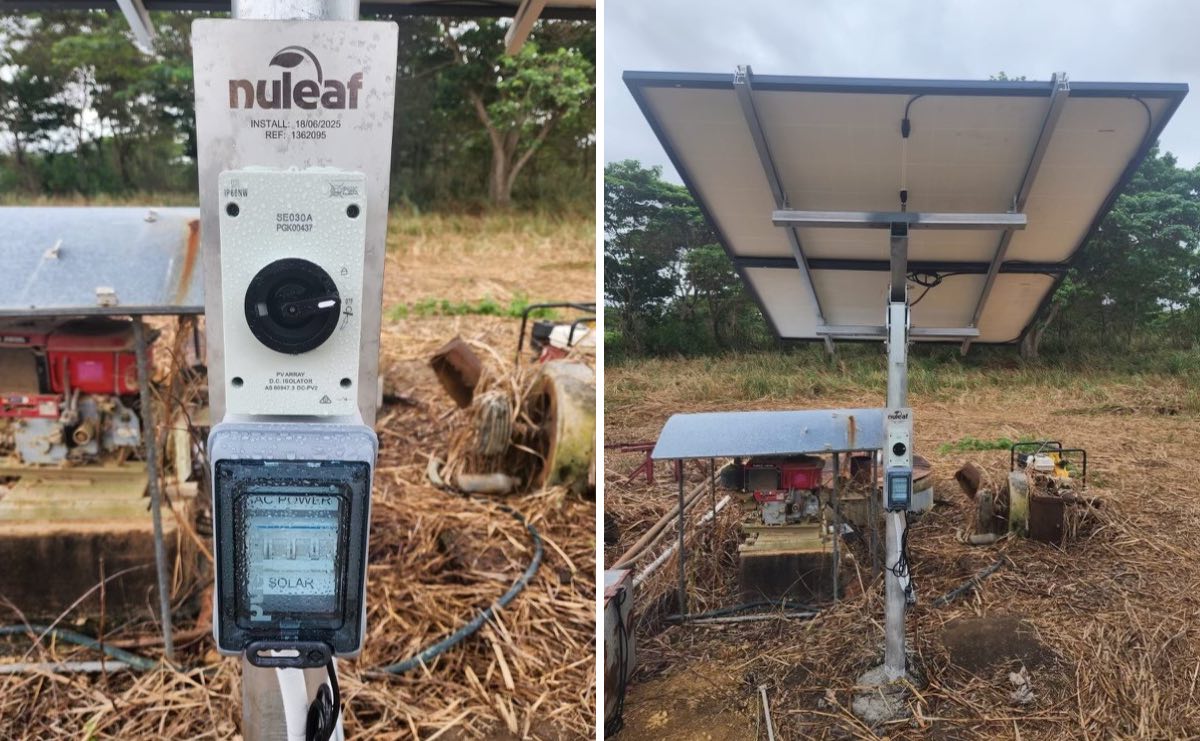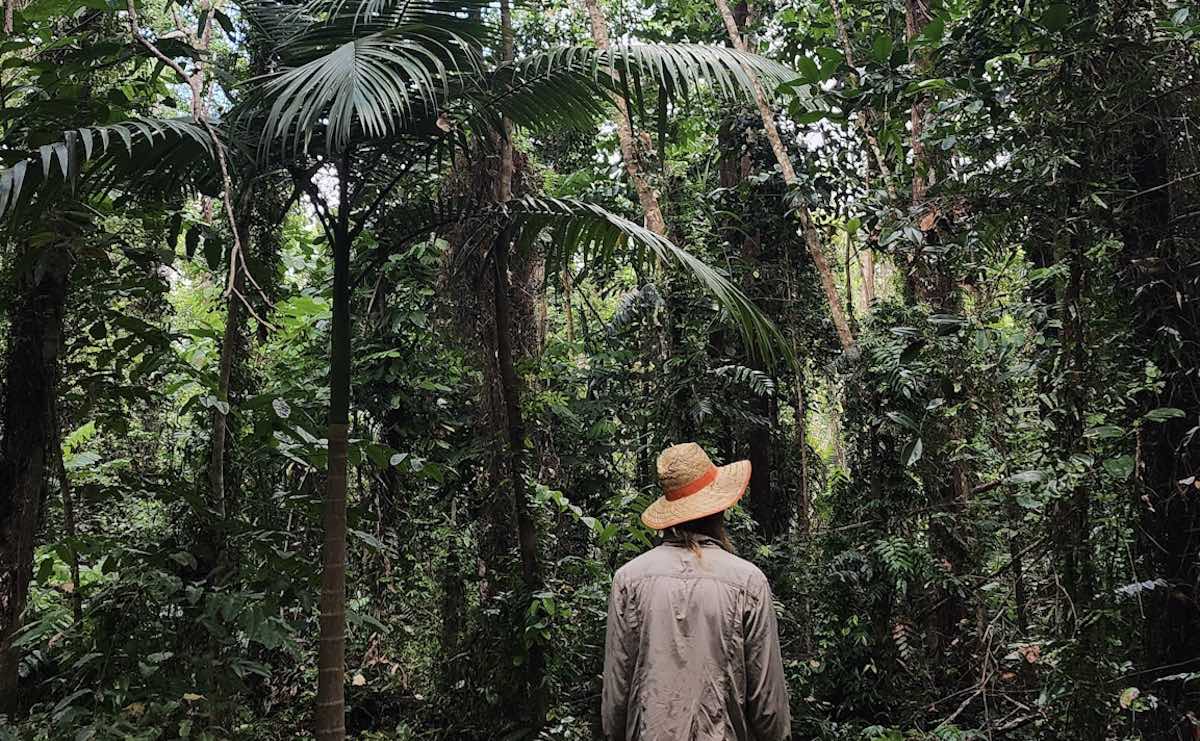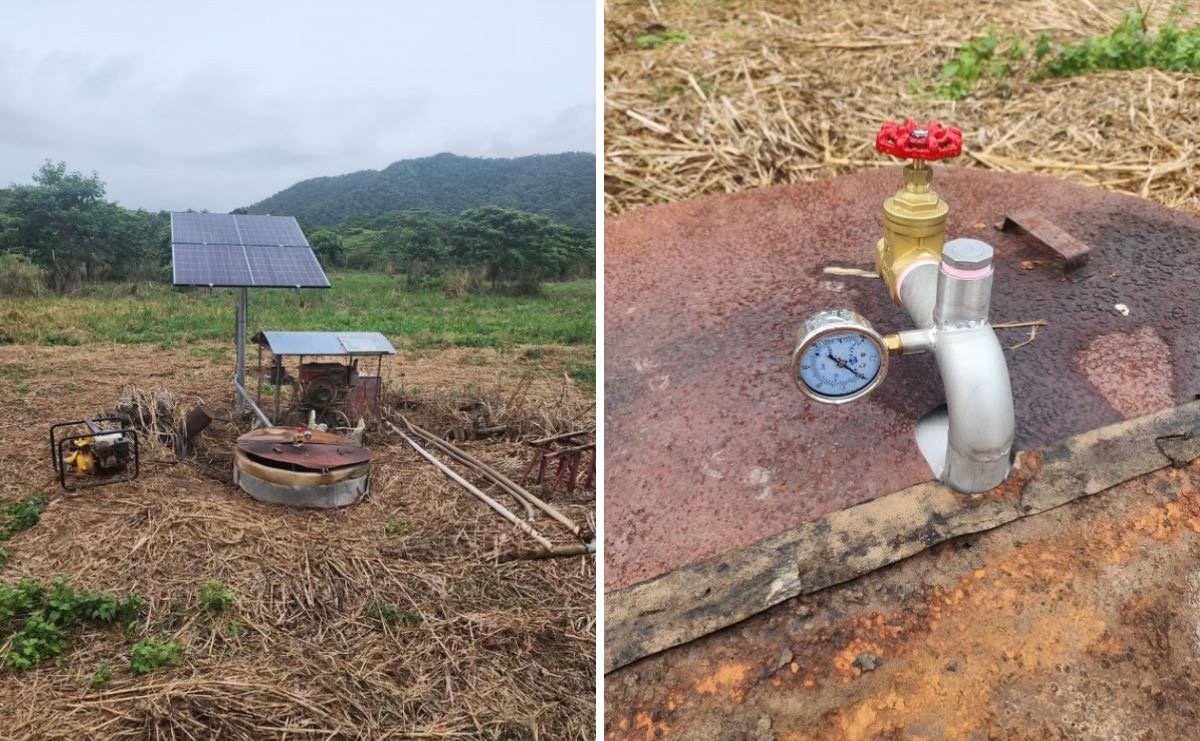Solar Irrigation System Powers Daintree Restoration Boost
Making Every Drop Count: Irrigation Boost for Rainforest Restoration at 110 Cape Tribulation Road
Supported by the James N Kirby Foundation

The upgraded solar irrigation system at 110 Cape Tribulation Road
Project Overview
We are incredibly grateful to the James N Kirby Foundation for a generous $15,000 grant, supporting the installation of an essential irrigation system for our rainforest restoration work in the Daintree—also known as the ‘Historical Rainforest Regeneration High’ project.
While the original proposal outlined a portable irrigation system, the reality on the ground brought new insights. After gaining access to our newly rescued property at 110 Cape Tribulation Road, Land Manager Ariel Simon, former Land Manager Hayden White, and GM of Operations Tate Brammer reassessed the project needs. What they discovered was an opportunity for a smarter, more effective solution.
Within a similar budget, we acquired a vastly improved solar-powered irrigation system. Not only is it more sustainable—it will enable the team to reach and potentially exceed the outcomes envisioned in the ‘Historical High’ project.
“We are very confident we will reach these productivity levels for tree planting of an average of 1,000 per week (plus+) with this irrigation system. This will enable us to scale up our restoration efforts, restoring habitat and sequestering carbon.”
— Tate Brammer, GM Operations & Finance
This upgraded solar irrigation system:
- Fills our current portable trailer irrigation system with tank and pump, ensuring water access year-round so we’re not restricted to planting only in the wet season.
- Supports restoration across 30 hectares of former sugarcane land, including 5 hectares of naturally regenerated habitat – needing 100,000+ trees to repair the land.
- Eliminates the need for diesel, making it more environmentally friendly.
- Distributes water across the entire site via piping—enabling large scale plant outs with contract planters.
Project Progress & Impact
Restoration prep at 110 Cape Tribulation Road is well underway. The team has also completed invasive species removal, baseline biodiversity monitoring, and early groundwork for Nature Accounting and Cassowary Credit programs. This is very exciting progress!
Thanks to the new irrigation system, we can now plant year-round. Without this wonderful asset, restoration would be on hold until the next wet season—a significant delay to ecological recovery and a challenging time to be planting young trees with unpredictable weather patterns. This resource, funded by the James N Kirby Foundation, is the only water supply on the 30 hectares of 110 Cape Tribulation Road.

Land Manager Ariel, on 110 Cape Tribulation Road
Project Outcomes
🌱 Boosted Tree Planting Capacity
One of the project’s main goals was to scale up land management production levels—targeting an average of 1,000 trees planted per week using this irrigation resource.
In general, it’s worth noting that the Land Management team has planted 29,366 trees—averaging nearly 3,000 trees per month despite challenging conditions and limited irrigation. It’s a remarkable achievement
With Ariel now leading a well-equipped team of two full-time dedicated Land Workers, we’re confident that the upgraded irrigation system will help us meet—and even exceed—our targets.
🌊 Cleaner Water for the Great Barrier Reef
Every tree planted improves water quality flowing toward the Great Barrier Reef. Tree roots hold soil together, reduces erosion and prevent sediment from washing into rivers and the ocean, where it can smother coral and block sunlight. Vegetation also acts like a natural filter, trapping pollutants like fertilisers and pesticides before they reach waterways.
Forested areas slow down runoff, allowing more rainwater to soak into the ground, giving pollutants time to break down in the soil. This process helps reduce algal blooms and ensures cleaner, clearer water reaches the Reef. This is particularly true for land, like 110 Cape Tribulation Road, which has been denuded due to intenstive sugarcane farming. Every tree planted here is building this filter for the Great Barrier Reef.
🐾 Restoring Wildlife Corridors
Planting trees increases wildlife habitat by providing food, shelter, and breeding sites—and the more trees we plant, the more habitat is restored, supporting stronger, healthier ecosystems. Trees also help create vital wildlife corridors, connecting fragmented habitats and allowing animals to move safely across the landscape in search of food, mates, and shelter.
“Where there is water there is life.”
— Hayden White, former Land Manager
110 Cape Tribulation Road borders one of the most biodiverse wetlands in the Wet Tropics. With new tree growth and consistent irrigation, this landscape is becoming a vibrant wildlife corridor once again.
🌿 Climate Resilience in Action
Reliable water access means faster tree growth, quicker canopy closure, and more rapid rainforest recovery—critical as climate conditions shift. The new irrigation system allows us to plant year-round, accelerating restoration and establishing climate refugia across the landscape.
From Hazard to Hero: A Well Repurposed
Along with the many ecological and restoration benefits , one of the most rewarding outcomes of the project was repurposing an old, deep, rusted, and disused well – once a potential hazard (on account of its depth) – into the heart of our irrigation system.
Ariel and the team engaged a professional installer to transform the well into a sustainable water source, breathing new life into a forgotten relic and turning it into a key restoration asset.

Entering the dry season, the irrigation system will become even more essential.
From all of us at Rainforest Rescue, our deepest thanks to James, Mel, and the entire James N Kirby Foundation. Your generous support has done more than fund equipment—it’s empowered our team, accelerated restoration, and brought fresh momentum to our mission. With this solar irrigation system, we’re not just planting trees—we’re planting hope. We’re so proud to walk this path with you. Thank you for helping us protect and restore the Daintree, one tree at a time.
Want more good Rainforest news in your life?
Subscribe to our eNews | Follow us on Instagram | Like us on Facebook | Subscribe to our YouTube channel
Help Protect Rainforests Forever
Donate to Protect Rainforests Forever | Become a Rainforest Guardian for as little as $2 a month | Partnership Options

